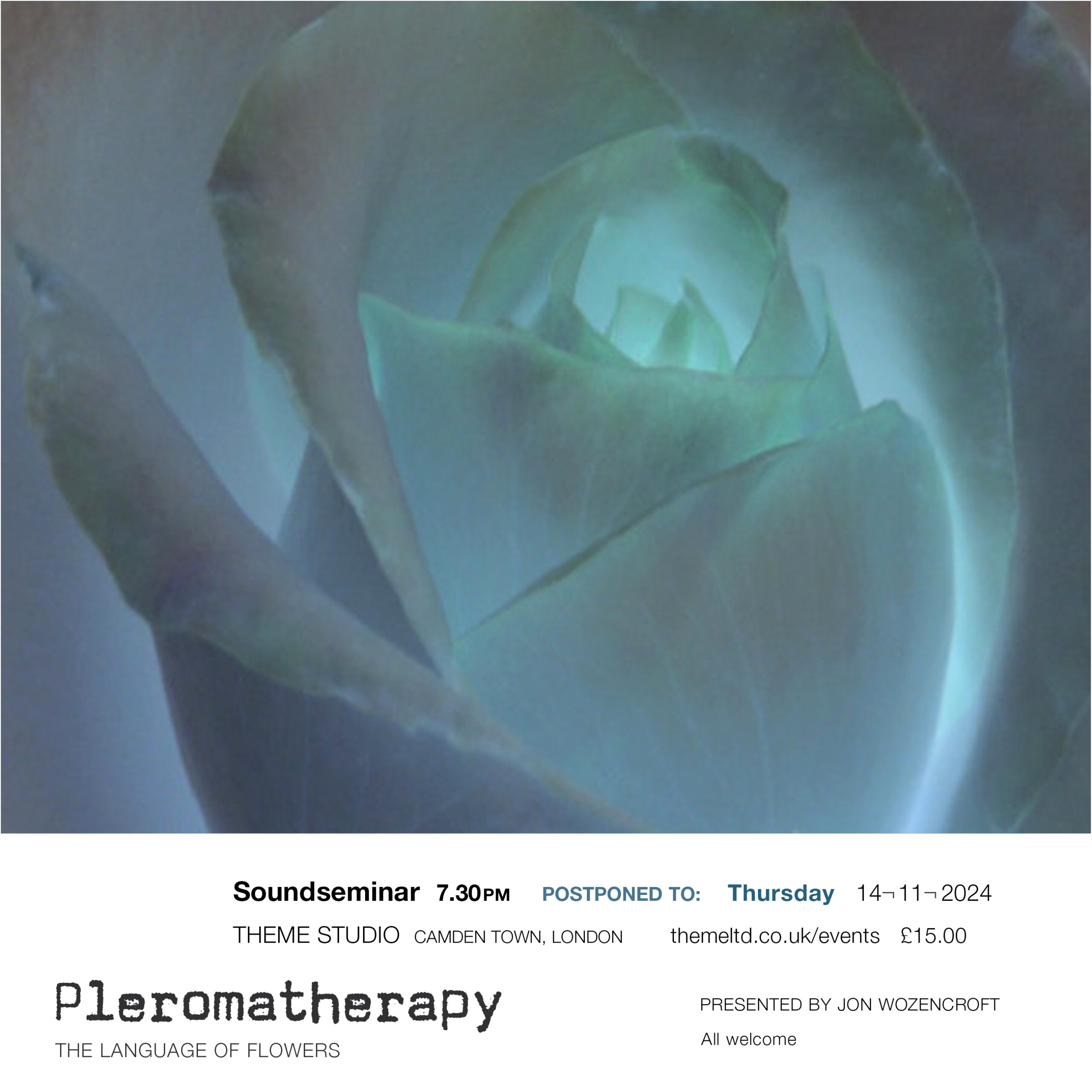‘Pleromatherapy’ is an invented word.
Walking every day as I do, to get the shopping, I pass by Queens Park station where outside there is a flower stall, ‘Pleromaflowers’, quite hidden in its signage and I’d often wondered why it was called that – a word or rather a prefix which I thought must refer to some personal, family association. Some days I enjoy a quick chat with the owner, Jason, maybe remarking about the sudden plethora of coffee shops in the area – I often see him sitting outside Planet Organic whose coffee is not so great and quite overpriced – but I’ve not yet asked him why he chose this name for the flower stall, but today at long last I decided to look it up, and here we are.
Pleroma (Koinē Greek: πλήρωμα, literally “fullness”) generally refers to the totality of divine powers. The word itself is a relative term, capable of many shades of meaning, according to the subject with which it is joined and the antithesis to which it is contrasted. It denotes the result of the action of the verb pleroun; but pleroun is either
♦ to fill up an empty thing (e.g. Matthew 13:48), or
♦ to complete an incomplete thing (e.g. Matthew 5:17);
and the verbal substantive in -ma may express either
1. the objective accusative after the verb, ‘the thing filled or completed,’ or
2. the cognate accusative, ‘the state of fullness or completion, the fulfilment, the full amount,’ resulting from the action of the verb (Romans 11:12, 13:10, 15:29, 1 Corinthians 10:26).
It may emphasize totality in contrast to its constituent parts; or fullness in contrast to emptiness (kenoma); or completeness in contrast to incompleteness or deficiency (hysterema Colossians 1:24, 2 Corinthians 11:9; hettema Romans 11:12).
A further ambiguity arises when it is joined with a genitive, which may be either subjective or objective, the fullness which one thing gives to another, or that which it receives from another.
All of that is from Wikipedia, God bless. But I wanted to get past the religious connotations, and reclaim this word to the beauty of flowers and a more sensual order.
It turns out that ‘Pleroma’ is a term updated by Carl Jung and Gregory Bateson to denote, first, “The totality of opposites”, and then, “The myth of power”, in other words, totality is momentary and always shifting according to circumstance. It is mobile, but not in the sense that a mobile phone is mobile (it is not – you are never mobile with a mobile phone, you just think you are).
This seemed to me an excellent new window in dealing with the contemporary malaise (of digital), always shifting from one condition to the next, the ‘plus-minus’, ‘on-off’ reflex where nothing is ever satisfactory or settled, because there is no faith in endurance nor stability. Endure for what? Nothing is ever “In-between”. The only thing that is fixed is mortality or a flat battery. It so easy to change ones mind and become like a pinball in a machine that is always promising you a higher score, and then the ball disappears and the machine asks you for more money.
As for music, it has become like this: nobody really wants anything new, The Beatles, Joy Division and Augustus Pablo and others have said what needs to be said and sounded how things can sound, however, we miss one vital element – we still have no idea of the relationship between this ‘then’ and ‘now’ because history is no longer a STEM subject and in believing that coding expertise and AI is the path to the future is much the same as believing that Shakespeare, Goethe and Huxley would agree to be tweeting on ‘X’, support Trump and listen only to things on Spotify and Apple.
“A rose is a rose is a rose”.











